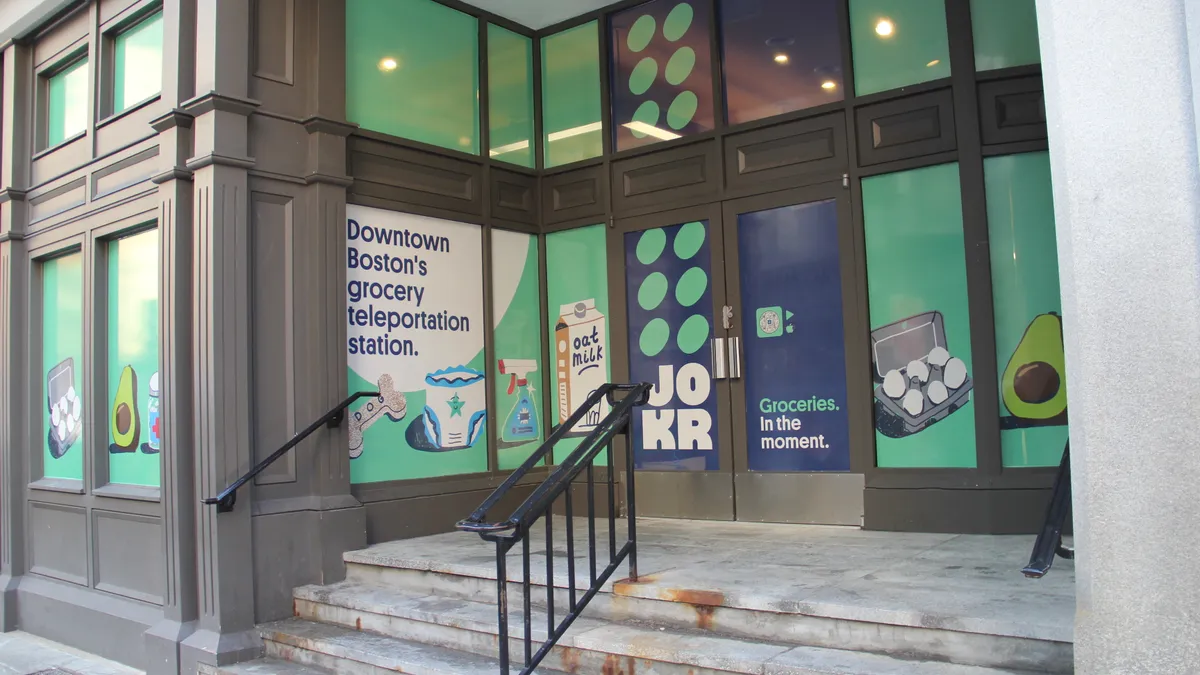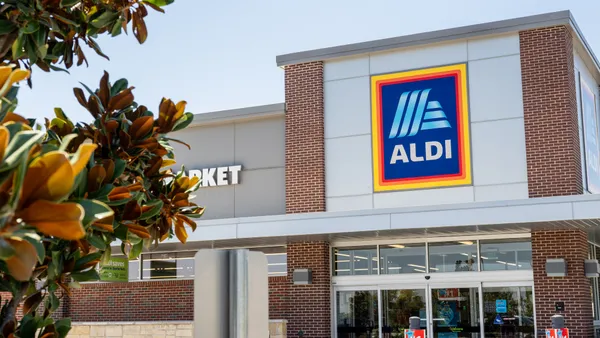Dive Brief:
- Instant delivery startup Jokr announced Thursday it has raised $260 million in Series B funding. The deal follows the $170 million it announced over the summer and raises its value to $1.2 billion.
- Jokr, which currently operates in New York City and in 12 international cities, mostly in Latin America, also launched service in Boston on Thursday.
- In an interview, U.S. co-founder Tyler Trerotola said the ultrafast delivery competition in the U.S. has been fiercer than it expected, but noted Jokr is focused on expanding and quickly developing a more personalized shopping experience.
Dive Insight:
Jokr’s latest funding haul shows investors still have a healthy appetite for quick commerce despite reports outlining the challenging economic realities and inevitable consolidation they face in the months ahead.
Jokr launched in March and in June opened its first four U.S. dark stores in New York City. Since then, the startup has opened seven additional dark stores in the city, and now covers most of Manhattan below 96th Street, as well as parts of Queens and Brooklyn, said Trerotola.
Although the company positioned itself as an instant-needs delivery company when it launched in June, offering everything from groceries to over-the-counter medication, Jokr has seen highest demand for its fresh grocery offerings, Trerotola said. That’s pushing the company to expand and hone its assortment of goods that shoppers can also find at their neighborhood supermarket, including produce and local grocery products. Each dark store now carries around 2,000 items after launching in June with half that amount, according to Trerotola.
In Boston, Jokr is launching service Thursday from two dark stores that will collectively serve 11 neighborhoods, including Back Bay East, Beacon Hill, West End, downtown and the Seaport District. The fulfillment sites, which will each carry around 1,800 products, will deliver to shoppers located within a radius of around a mile and a half, Trerotola said — slightly larger than the service range of its New York City sites — with couriers on bikes and scooters fulfilling orders the same way they do in New York.
Trerotola said Jokr plans to eventually reach more neighborhoods but is taking a slower approach to growth in Boston, adding the company wants to make sure it has the right assortment in each neighborhood before expanding across the city.
There are other notable adjustments, as well. While the company doesn’t charge a delivery fee or maintain an order minimum in New York City, in Boston it will implement a fee for orders that fall below $10, Trerotola said, underscoring the need for the company to recoup at least some of its delivery costs. The company did not indicate the fee amount by press time.
And despite the focus on 15 minutes as a selling point for many quick commerce firms, Trerotola indicated Jokr will turn down the volume on marketing around a specific time.
“We’re not as focused on that 15-minute promise [in Boston],” he said, noting that orders can arrive in as little as 10 minutes but that consumers find delivery in around 20 minutes perfectly acceptable. “Anything under that 20- to 25-minute mark is acceptable and allows us to reach more consumers and still bring the same great experiences.”
Having more time to deliver goods may be a necessity as ultrafast firms move outside of New York City, with its heavy population density. At the same time, it calls into question how these companies will differentiate from more mature companies like Gopuff, DoorDash and Instacart that already offer delivery in around 30 minutes across numerous markets.
Trerotola said Jokr aims to further personalize its app experience so that it's showing customers targeted products depending on the time of day. "You're starting to see products actually shifting by time of day in the app, and by user," he said.
Jokr is also adding local products in categories like bread, ice cream and snacks.
Ultrafast delivery companies are burning through cash right now to establish footholds in key markets and usher consumers onto their platforms. Firms like Jokr have said they're focused on scaling right now and will address profitability later, but experts question whether they'll ever be able to make money. In the U.S., firms face higher labor and real estate costs, along with lower population density in major markets versus Europe.
In addition to its U.S. operations, Jokr also operates in several South American markets, making it something of an outlier among quick commerce companies like Gorillas and Getir that have focused most of their expansion on Europe. All told, Jokr operates 200 dark stores across 15 cities and claims it has achieved operational profitability in some of those markets.










